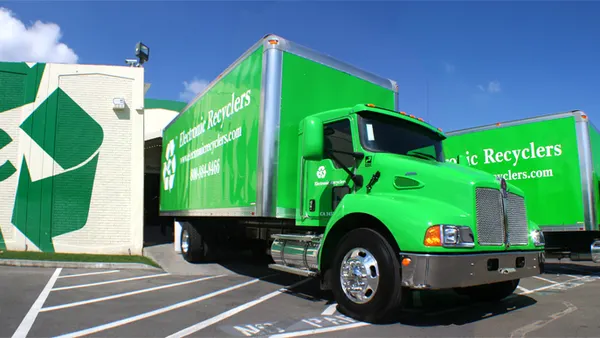Dive Brief:
- Nashville, TN has launched a new phase of its larger Food Waste Initiative with the Mayor’s Food Saver Challenge. Participating restaurants will track their progress on reducing, recycling and donating wasted food and share the results, as reported by The Tennessean.
- Tips include better waste tracking, using smaller plates, buying imperfect local produce, getting rid of trays in large facilities, cooking to order and offering smaller portion sizes.
- The challenge kicked off with a two-day Chef Advocacy Training program co-hosted by the James Beard Foundation and the Natural Resources Defense Council (NRDC). On Jan. 30, 21 high-profile chefs and restaurateurs met for the first session to share best practices and come up with new ideas.
Dive Insight:
This is part of the NRDC's larger Nashville Food Waste Initiative that was announced in 2015 and includes a wide range of programs. One element is advising Resource Capture LLC on the siting and development of an anaerobic digester. Another key portion is a survey that asks residents to track their organic waste and allow researchers to use it for a characterization study. NRDC is also doing this in New York and Denver.
Expanding food donation is also a key part of the initiative, which local residents and many of these participating restaurants will be encouraged to do. Davidson County, where Nashville is located, has an estimated 110,000 food-insecure residents that could benefit from having access to larger amounts of quality food in donation networks. Other cities, such as Charlotte and London, have also recently launched programs to connect the issue of wasted food with how people shop and cook.
High-profile chefs have become more involved in food waste campaigns overseas, on Capitol Hill and in multiple U.S. cities lately. Whether they're bringing these practices into their restaurants or participating in large-scale events such as Feedback's Feeding the 5000 series, this can help raise awareness in a different way than standard municipal education programs. As seen with the recent launch of the new Further With Food online resource hub, this is an issue that will only continue to gain more prominence in the year ahead.











